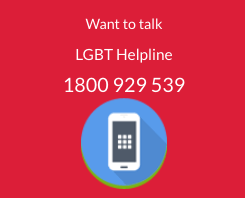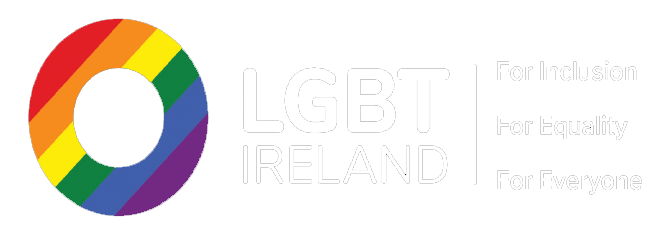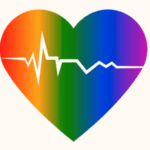Sexual Health for LGBTI+ People
Sexual health is an important part of overall health. The ability to enjoy fulfilling relationships, being free of sexually transmitted infections, and having the ability to control ones fertility are all aspects of good sexual health. This section contains information on safer sex strategies for LGBT people and a range of sexual health support services.

About Sexual Health for LGBT+ People
Sexual health concerns can be wide ranging and encompass a number of physical, mental, emotional and even spiritual considerations. You may be concerned about having contracted an STI or becoming pregnant or nervous about sexual performance or relationship communication. Whatever your concern, our trained volunteers are here to listen in confidence and without judgement and can provide information on additional support services, should you need them.
Safer Sex
Safer sex is a term relating to strategies that minimise the risk of unwanted consequences of sex, such as transferring HIV and other sexually transmitted infections (STIs). While most sex acts involve some element of risk, there are precautions that can be taken to ensure we engage in ‘safer sex’.
Safer sex can be practiced through establishing consent, knowing our boundaries, using condoms, communicating needs, desires and STI status and getting tested for HIV/STIs. Condoms or other barrier methods such as femidoms and dental dams can create a protective barrier for the mouth, genitals and anus from bodily fluids such as semen, pre-cum, vaginal fluids and blood which can transmit disease.
We encourage you to check out Healthline’s LGBTQIA Safe Sex Guide here for more information.
Unplanned Pregnancy
LGBT people can get pregnant, so contraceptive use may be an important consideration if you are having sex that puts you at risk of pregnancy and you do not wish to become pregnant. Contraceptive methods can help prevent unwanted pregnancy. Emergency contraception is available in chemists nationwide and can be taken up to 72 or 120 hours after unprotected sex.
Visit https://www.ifpa.ie/Sexual-Health-Services/Emergency-Contraception for more information.
Rape and Sexual Assault
LGBT people can experience rape or sexual assault. For support and information related to rape and sexual violence, please freephone the National 24-hour Rape Crisis Helpline on freephone 1800 778 888.
Sexual Health Resources
The links in this section will point you in the direction of the most recent sexual health information for LGBT people. These links will help you locate sexual health testing clinics and make informed choices about your sexual health.
Sexual Wellbeing.ie
Public STI Services available in Ireland. Learn more here for further information.
Sexual Health 24
Sexual Health 24 hours a day. Discreet, confidential sexual health testing from the comfort of home. Learn more here for additional resources.
HIV Ireland
Free HIV and STI Testing, resources and information offered by HIV Ireland. Click here for further information.
Sexual Wellbeing & Intimate Relationships for Lesbian, Bisexual and Queer Women
A resource with useful information and resources for lesbian, bisexual and queer women in our community. Learn more here.
Cervical Check
CervicalCheck invites every person with a cervix in Ireland aged 25-65 years for free cervical screening, every three or five years depending on age. Learn more about free cervical screening here.
Gay Men's Health Service (GMHS)
GMHS is Ireland’s only dedicated statutory sexual health and wellbeing service for gay and bisexual men, men who have sex with men and the trans population Learn more here.
GOSHH Ireland
GOSHH – Gender Orientation Sexual Health HIV is located in Limerick City at 18 Davis Street. They sexual health and wellbeing, information and referral to other services. Learn more here.
Cork Sexual Health Centre
The Sexual Health Centre provides up-to-date information, support and education in the areas of sexual health, wellbeing, sexuality and healthy relationships. Learn more here.
Unplanned Pregnancy
Information and support on all your options, including continued pregnancy supports and abortion services. Contact the My Options freephone line on 1800 828 010. Learn more here.
Sexual Assault Treatment Unit
Information on all your care options if you have been raped or sexually assaulted. Learn more about the service and resources available here.
Man2Man Programme with HIV Ireland
Information and support for men who have sex with men (MSM). Info on Sexual health, condoms, STI testing and support services Learn more here.
Drugs and Alcohol Services
There is a wide range of drug & alcohol services throughout the country. Learn more here.
Sexual Health STI Clinics
There is a wide range of STI Sexual Health Clinics throughout the country. Learn more here.
Women’s Health Service and Anti-Human Trafficking Team
The HSE Women’s Health Service (WHS) and Anti-Human Trafficking Team (AHTT) is a statutory service provided by the Health Service Executive. The WHS operates sexual health clinic services and outreach support to women/trans women involved in the sex industry. The AHTT has responsibility for care planning for both female/male victims of trafficking in all areas of exploitation. Further information is available here.

